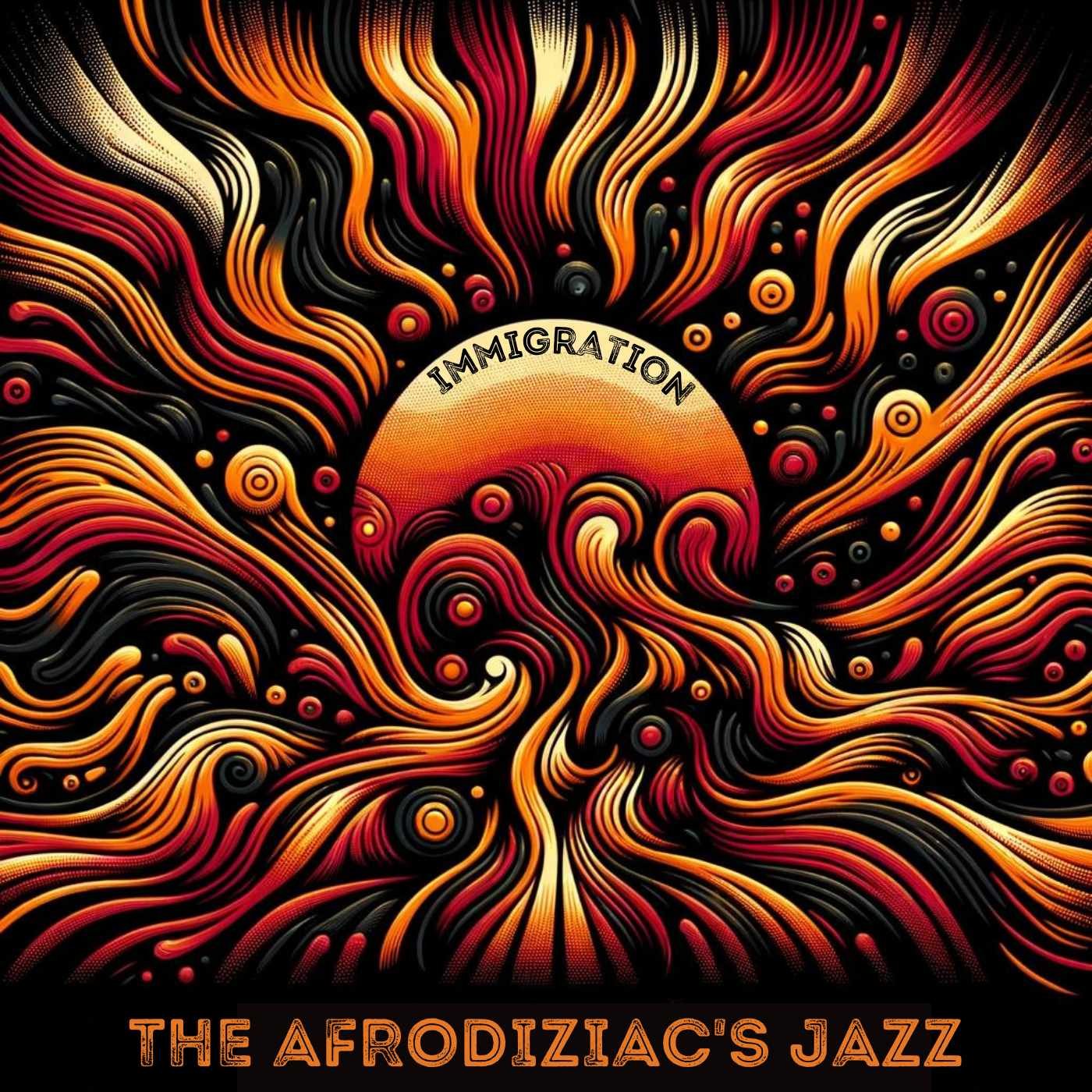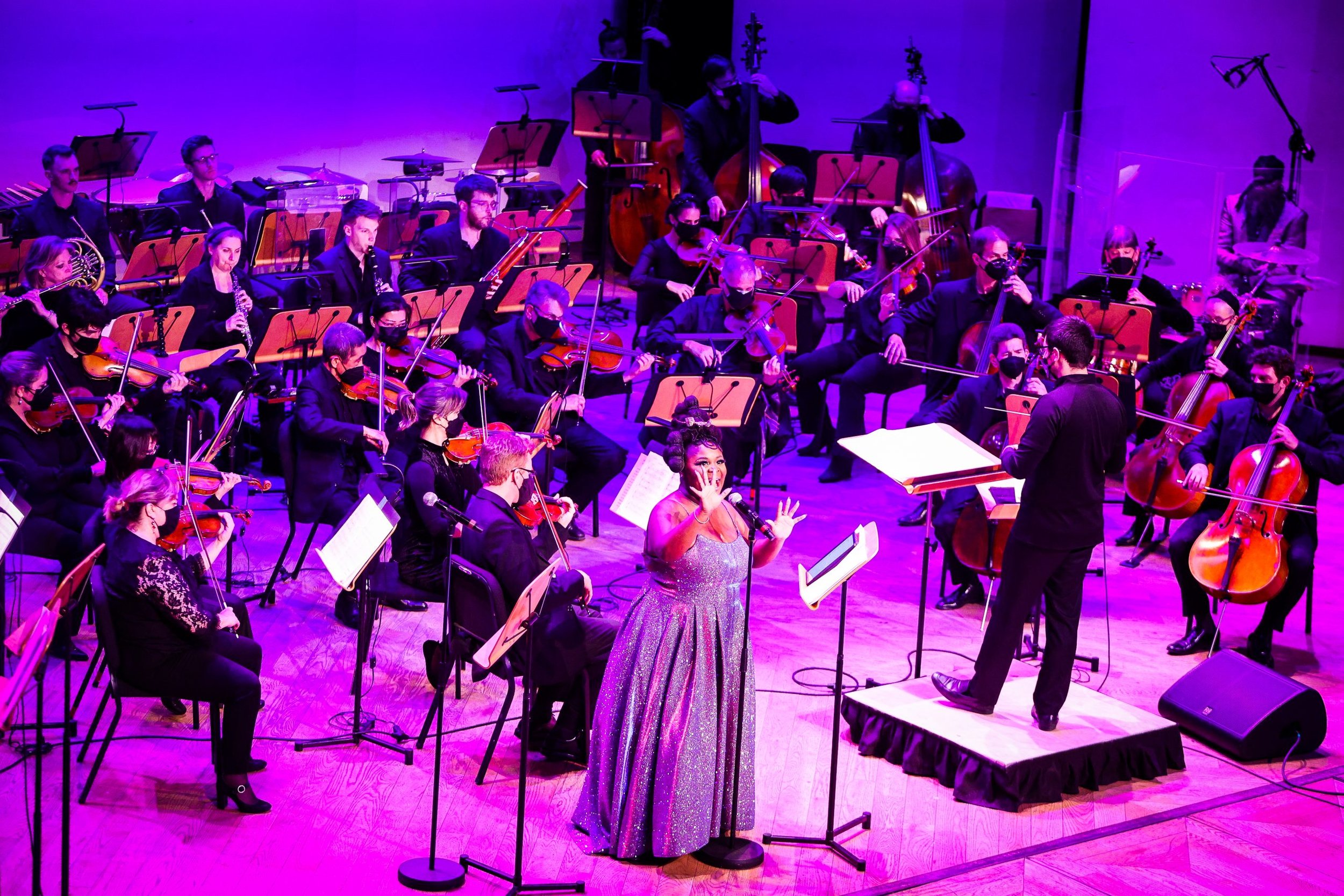The Afrodiziak's Jazz Makes Ethiopian Jazz Sound like New Orleans Music

The band finds a distinctly New Orleans way to present Ethiopian jazz, and to make it speak for them.
The new Immigration by The Afrodiziak’s Jazz draws heavily from Ethiopian jazz, and it makes sense in New Orleans because it sounds “simultaneously familiar and foreign,” as Richard Williams of The Guardian wrote in his appreciation of Ethiopian jazz pioneer Mulatu Astatke. Williams wrote that in Ethiopian jazz, “Western instruments–trumpets and saxophones, electric keyboards and bass guitars–are played with a different accent, generated by tuning (some Ethiopian music also makes use of non-tempered scales) and timing. Astatke's early records often meander gently but seductively along the apparently endless path of a two-chord vamp, like a laid-back East African cousin of John Coltrane's jazz or James Brown's funk.”
That funk is in part the overlapping point because a casual listen places The Afrodiziak’s Jazz somewhere on the brass band spectrum, not in the rich, musical crosstalk that makes New Orleans brass bands such a chaotic joy, but the band leads with its horns and drums, often in dance rhythms. It doesn’t take a lot of imagination to think about how the band could shed the keyboards and electric bass if it so desired and take the songs to the streets. Perhaps that’s in part because saxophone player Maude Caillat of The Afrodiziak’s Jazz learned to play Ethiopian jazz while living in Paris and playing in bands on the street. Immigration honors the history of Ethiopian jazz with two compositions by Astatke, and hearing their versions next to his helps to make the band’s choices clear.
Mulatu’s version of “Dewel” is wilder, with horns blowing freely over his vibraphone, drums and organ until they come together for the horn melody, which is regularly tested by improvised flourishes. The horn line is the central thought around which everything moves, with the performance threatening to come apart at any moment.
The Afrodiziak’s Jazz makes the horn line the point of the song, and it’s played with enough muscle and funk to make it a party starter. Moments play with the dynamics and give the players room to roam the way Astatke did, but they clearly—and rightly—hear a power in the melody and put Caillat’s tenor sax, Matt Thomas’ baritone sax, and Adam Lessnau’s trombone on it to give it weight. That approach pays off, but in a very different way than Astatke’s.
Their take on another Astatke composition, “Yekatit,” stays closer to his original, though his original is less free. The Afrodiziak’s Jazz moves the electric guitar introduction to a saxophone, and again they mass the horns, but with an electric piano to add texture. The band clearly believes in the power of the central horn line in “Yekatit” and, as in “Dewel,” makes it the star.
Even in the band’s originals, the horns frequently come together to snake through a signature melody, but The Afrodiziak’s Jazz boldly takes on Mingus’ “Haitian Fight Song” and goes the other way. Their version clearly respects the original, but it’s looser, starting with a fuzzed, electric bass replacing Mingus’ acoustic bass in the introduction. The signature riff comes with counterpoint horn lines almost from the start, giving it the communal, conversational vibe consistent with Ethiopian jazz.
Fans of Ethiopian jazz talk about it as a storytelling medium even though it’s primarily an instrumental sound, and two of Caillat’s compositions open that door for those who know. When My Spilt Milk interviewed Caillat in 2023, she talked about moving from her native Switzerland to Senegal to learn to play Senegalese music, and you can hear the love, affection and respect associated with that time in “Senegal.” The song changes musical gears as it slows the party down and features the saxophones in casual mediation over an electric piano and a loping percussion pattern.
The album’s title track similarly riffs on real life as Caillat musically reflects on her own journey and the journey of others like her “through the immigration process to try to live in the place where they feel they were meant to be,” she says.
Even if you don’t know her story, the drama is easy to appreciate. Caillat signals the mood by chopping together fragments of patriotic songs to start a solo, as if all the aspirational, optimistic impulses are tested and strained by the process. The piece moves through a series of movements including moments of communal strength, but it ends with her sax alone and wandering, bringing the song to an end more than a resolution.
Part of the fun of Immigration is that nothing about it sounds unusual. New Orleans has embraced, incorporated, or at least accommodated such a variety of musical sounds over the years that nothing in The Afrodiziak’s Jazz stands out as unusual. But digging into the band’s roots not only opens up a body of music well worth the exploration, but it makes the band’s innovations clear.
Creator of My Spilt Milk and its spin-off Christmas music website and podcast, TwelveSongsOfChristmas.com.






